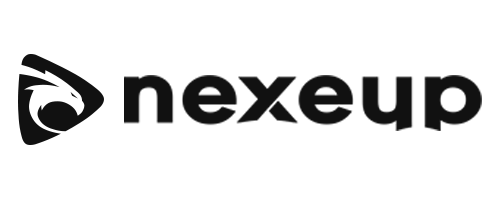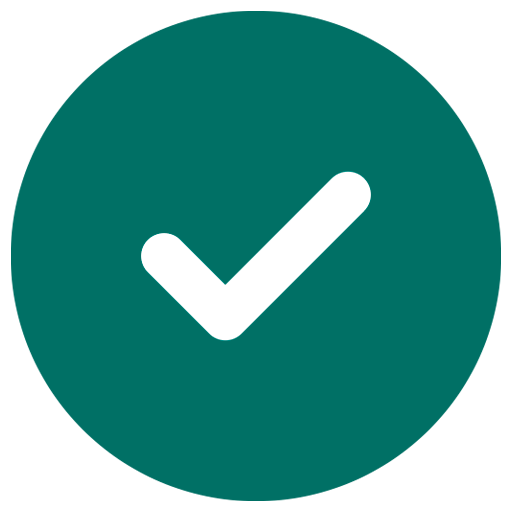
UN Women: International Consultant – Gender-Based Violence / GBV Administrative Data
United Nations Development Programme

Remote
•4 hours ago
•No application
About
Background:
UN Women, grounded in the vision of equality enshrined in the Charter of the United Nations, works for the elimination of discrimination against women and girls; the empowerment of women; and the achievement of equality between women and men as partners and beneficiaries of development, human rights, humanitarian action and peace and security.
The Fiji Multi Country Office (MCO) covers 14 Pacific countries, with field offices/presence in 6 countries. Each field presence is led by a national Country Programme Coordinator. UN Women, in partnership with Pacific Islands Governments, regional organizations, CSOs, donors and UN agencies, focuses on delivering within four interlinked programme areas:
- Ending Violence against Women and Girls (EVAWG);
- Women’s Economic Empowerment (WEE);
- Gender and Protection in Humanitarian Action; and
- Governance and Participation in Public Life (GPPL)
Violence Against Women and Girls (VAWG) is a central barrier to gender equality and a cause of widespread violation of human rights across the Pacific1. To respond to the rates of violence in the Pacific, UN Women has developed a comprehensive elimination of violence against women and girls (EVAWG) programme which takes a transformative approach to prevent violence against women and girls at multiple levels (regional, national and community), and to ensure survivors have access to quality response services. The approach to preventing and responding to VAWG also takes into account the context of the Pacific, which requires an integrated approach to addressing VAWG across the humanitarian – development nexus.
The Fiji MCO EVAWG portfolio is one of the largest UN Women EVAWG programmes globally. The most substantial programme under UN Women’s EVAW portfolio is the Pacific Partnership to End Violence Against Women and Girls (Pacific Partnership program). The first phase of the Pacific Partnership (hereafter, Phase I) was an ambitious, five year joint programme, with UN Women, the Pacific Community (SPC) and the Pacific Islands Forum Secretariat, which brought together governments, civil society organizations (CSO), communities and other partners to change the social norms that allow violence against women and girls to continue; to ensure survivors have access to quality response services; and to supported national and regional institutions to meet their commitments to gender equality and prevention of violence against women and girls.
The Pacific Partnership has completed its first phase of implementation (2018 – 2023) and is expanding into Phase 2 (2023 – 2027). The Pacific Partnership Programme Phase II is funded primarily by the Government of Australia, the European Union (EU) and UN Women. Phase II builds on the achievements of Phase I and of the Spotlight Initiative Pacific Regional Programme (2019-2023), which are comprehensive, multi-faceted programmes, grounded in an aligned theory of change. The Action is informed by the lessons and key recommendations of the Pacific Partnership Phase I Mid-Term Evaluation and the Spotlight Initiative Mid-Term Assessment. It expands on Phase I results and wide-ranging regional and national partnerships. It will complement and ensure harmonization with other GE programmed in the region, including the Australian Government Department of Foreign Affairs and Trade (DFAT) "Pacific Women Lead" and other major initiatives on GE and EVAWG. The priority focus countries under Phase II are Fiji, Samoa, Tonga, Solomon Islands, Vanuatu and Kiribati.
Development and roll out of GBV Administrative Data systems will continue to be supported throughout Phase II as a core building block of a strong multi-sector service delivery system. In this context, UN Women Fiji MCO is looking for an international consultant to provide dedicated technical support across Phase II priority countries on GBV administrative data. The GBV Administrative Data consultant will be reporting to the EVAWG Programme Technical Specialist and will be supported by the EVAWG Programme Management Specialist, who will be the point of contact on the contract and payment issues.
Description of Responsibilities/ Scope of Work
- Assess administrative data practices and systems in priority Pacific Partnership countries;
- Develop and refine national administrative data systems roll-out/strengthening plans;
- Develop and/or adapt administrative data tools, documents, protocols and databases specific to unique contexts in priority countries;
- Develop and deliver tailored capacity-building and training to key stakeholders in support of the set-up and strengthe ning of national administrative data systems;
- Provide technical assistance to key stakeholders on the collection, storage, collation, sharing and analysis of administrative data in line with best practice survivor-centered standards to inform service improvements, policy and other actions;
- For countries that are in the data collection phase of systems development, ensure the highest standard of ethics and data protection protocols are put in place in the design of the data collection and sharing process;
- Support UN Women staff learning on survivor-centered administrative data management and best practices;
- Provide technical assistance for the analysis of administrative data to better understand key trends in GBV including its intersections with climate change, emergencies and labor mobility;
- Document learnings, promising and good practices and developing knowledge products on GBV administrative data in the Pacific Region; Support additional administrative data initiatives, such as sector-specific analyses based on priority needs and opportunities identified throughout the period.
No.
Deliverable
Estimated duration to complete
Target Due Date
Percentage (Payment Schedule – optional)
Up to 45 days
By 31 August, 2025
20%
Up to 100 days
By 30 April, 2026
20%
Up to 45 days
By 31 July, 2026
20%
Up to 30 days
By 31 December, 2026
20%
Up to 25 days
By 31 March 2027
10%
All deliverables, including their design, scope and prioritization will comply with survivor-centered standards for administrative data management.
Note: The mentioned number of working days has been estimated as being sufficient/feasible for the envisaged volume of work to be completed successfully and is proposed as a guideline for the duration of assignment. It cannot and shall not be used as criteria for completion of work/assignment. The provision of envisaged deliverables approved by the UN Women designated official shall be the only criteria for Consultant’s work being completed and eligible for payment/s.
Institutional Arrangement
The selected consultant will report to and work under the direct supervision of the EVAW Programme Technical Specialist, a UN Women staff member. They will work closely with UN Women colleagues, including EVAWG country coordinators.
Travel to Pacific Partnership Phase II priority programming countries is anticipated.
Travel costs, including daily subsistence allowance (DSA) will be covered by UN Women in line with existing UN Women Duty Travel Policy.
Duration of the Work
The duration of this assignment will be for 24 months' work assignment, with a tentative start date from 1 June 2025 until 31 May 2027.
Duty Station
The consultancy is home-based. The consultant is expected to work during standard working hours Fiji time. It is anticipated that travel will be involved to countries where UN Women has relevant programming, including Fiji, Solomon Islands, Kiribati, Tonga, Vanuatu, and Samoa. The travel schedule will be informed by programming priorities and with the relevant team members.
Performance Evaluation
The Consultant’s performance will be evaluated based on timeliness, responsibility, initiative, communication, accuracy, and quality of the products delivered.
Financial Arrangements
Payments will be disbursed to the consultant on a deliverable-based arrangement aligned to the “Expected Deliverables” of section of the ToR and certification by the EVAWG Programme Technical Specialist that services have been satisfactorily performed.
Competencies :
Core Values:
- Integrity;
- Professionalism;
- Respect for Diversity.
Core Competencies:
- Awareness and Sensitivity Regarding Gender Issues;
- Accountability;
- Creative Problem Solving;
- Effective Communication;
- Inclusive Collaboration;
- Stakeholder Engagement;
- Leading by Example.
Please visit this link for more information on UN Women’s Values and Competencies Framework:
Functional Competencies:
- Demonstrated organizational skills, ability to establish priorities and meet deadline
- Ability to write in a clear and concise manner and to communicate effectively in English
- Strong interpersonal skills and ability to communicate in a sensitive and effective manner to diverse audiences
- Demonstrates use of initiative and ability to make appropriate linkages in work requirements
- Openness to change and ability to receive/integrate feedback
- Strong knowledge of ICT relevant to administrative database systems
- Proven skills in desktop computer software such as Microsoft Word, Excel and Power Point
Required Qualifications:
Education and Certification:
- Master’s degree or equivalent in Gender Studies, Social Work, Social Sciences, Public Health or a related field is required.
- A first-level university degree in combination with two additional years of qualifying experience may be accepted in lieu of the advanced university degree.
Expereince:
- At least 7 years (Master's degree) or 9 years (first level University Degree) of progressively responsible work experience in GBV and/or gender equality programmes.
- Minimum 3 years of proven working experience in GBV response including administrative data in emergency and/or development settings.
- Experience setting up and/or managing administrative data systems, particularly in the Pacific, is strongly preferred.
- Strong familiarity with best practice principles, tools and guidance for survivor-centered administrative data management.
- Excellent analytical skills with strong drive for results and capacity to work independently.
- Excellent English communication and writing skills.
Languages:
- Fluency in English is required.
Statements :
In July 2010, the United Nations General Assembly created UN Women, the United Nations Entity for Gender Equality and the Empowerment of Women. The creation of UN Women came about as part of the UN reform agenda, bringing together resources and mandates for greater impact. It merges and builds on the important work of four previously distinct parts of the UN system (DAW, OSAGI, INSTRAW and UNIFEM), which focused exclusively on gender equality and women's empowerment.
Diversity and inclusion:
At UN Women, we are committed to creating a diverse and inclusive environment of mutual respect. UN Women recruits, employs, trains, compensates, and promotes regardless of race, religion, color, sex, gender identity, sexual orientation, age, ability, national origin, or any other basis covered by appropriate law. All employment is decided on the basis of qualifications, competence, integrity and organizational need.
If you need any reasonable accommodation to support your participation in the recruitment and selection process, please include this information in your application.
UN Women has a zero-tolerance policy on conduct that is incompatible with the aims and objectives of the United Nations and UN Women, including sexual exploitation and abuse, sexual harassment, abuse of authority and discrimination. All selected candidates will be expected to adhere to UN Women’s policies and procedures and the standards of conduct expected of UN Women personnel and will therefore undergo rigorous reference and background checks. (Background checks will include the verification of academic credential(s) and employment history. Selected candidates may be required to provide additional information to conduct a background check.)
How to Apply
- All applications must include (as an attachment) the completed UN Women Personal History form (P-11) which can be downloaded from: https://www.unwomen.org/en/about-us/employment/application-process
- A cover letter (maximum length: 1 page)
- Kindly note that the system will only allow one attachment.
- Only shortlisted candidates will be notified.
- UN Women Hiring Manager may ask (ad hoc) for any other materials relevant to pre-assessing the relevance of their experience, such as reports, presentations, publications, campaigns, or other materials.
Note: Applicants must ensure that all sections of the application form, including the sections on education and employment history, are completed. If all sections are not completed the application may be disqualified from the recruitment and selection process .








